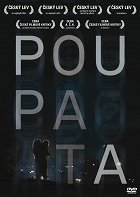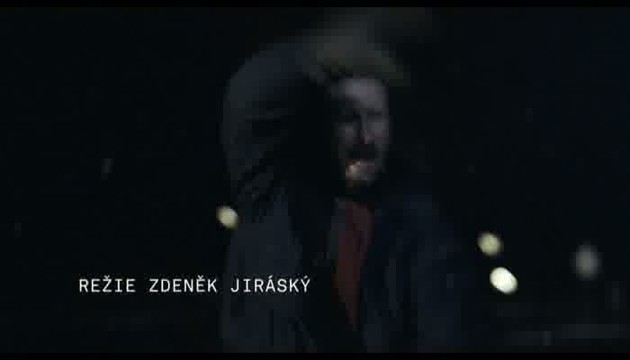Regie:
Zdeněk JiráskýDrehbuch:
Zdeněk JiráskýKamera:
Vladimír SmutnýMusik:
Martin PřikrylBesetzung:
Vladimír Javorský, Malgorzata Pikus, Marika Šoposká, Josef Láska, Aneta Krejčíková, Kateřina Jandáčková, Jiří Maryško, Vladimír Polívka (mehr)Inhalte(1)
The story about the gradual breakdown of a family living in a small town. Agata wants a happy life far from home, fully aware that her only hope is to escape and therefore betray those close to her. Honza believes in the purity and power of love, regardless of the circumstances under which it is born. Kamila looks confidently to the future and has no intention of accepting the misery of the present. Only Jarda knows that he will not change the world or himself. Aware of his weakness, he does not even try. In his mind, of course, his addiction to slot machines, which has led to a nearly impossible situation. The real and convincing attempt to rescue his family comes when it is too late. (Verleiher-Text)
(mehr)Kritiken (4)
Ich weiß nicht, warum das soziale Drama etwas zwischen dem Buch Hiob und der Offenbarung des hl. Johannes in der gottlosen Industrielandschaft sein sollte ... Paradoxerweise betrachtet er das Schicksal der Helden des tschechischen Films Flower Buds nicht als ein tragischeres, sofern ihnen der Macher anstelle einer wahrnehmungsfähigen Eigenschaft stets weitere Qualen auferlegt, sie in einer ekelhaften Welt ohne Hoffnung dahinvegetieren lässt und ihre Beziehungen mehr oder minder zu negative soziale Interaktionen reduziert. Anstelle einer authentischen sozialen Aussage über eine Krise und Randgebiete haben wir es hier mit einem großartigen Theater der Vergeblichkeit sowie der enttäuschten Hoffnungen zu tun, welches anstelle der Katharsis eine raffinierte Drehbuchwendung enthält - jedoch, sofern wir das ganze zu Ende denken, sagt die Drehbuchwendung weder über die Charaktere, noch über die Welt oder (nahezu fehlende) moralische Werte aus. Entstanden ist somit weder eine Arbeit mit rohen Qualitäten eines Fish Tanks, noch ein stilisiertes Bild der "harten Subtilität" des Schicksals über die Größe von Adams Äpfeln, noch die überzeugend abgestufte soziale Aussage über die alltägliche Hoffnung der in Verzweiflung wie im Die Jahreszeit des Glücks ... Entstanden ist ein erzählerisch sowie regietechnisch recht kultivierter Film, welchem die manieristische Bemühung alles mit möglichts grauen Farben abzubilden, eben schadet. Paradoxerweise verschwinden somit die Schatten, welche aus dem Konstrukt lebendes Gewebe machen. Ich denke, dass aus diesem Grund auch die produktive Reflexion des normalisierenden "Schmutzes hinter den Nägeln“ verschwindet, wovon Matty schreibt. Der tschechische Film Flower Buds bleibt eher bei der für Großereignisse typischen Oberfläche grundlegender Fehler oder verkehrter sozialer Rituale, anstatt eine detaillierte Analyse dessen anzubieten, was im Leben der "Neonormalisierung" doch so schicksalshaft ist. Jedoch selbst unter dem Blickwinkel der wenigen gelungenen Szenen sowie soliden schauspielerischen Leistungen ist es notwendig, dies als einen überdurchschnittlichen tschechischen Film zu bewerten und Jiráský auf die nicht allzu lange Liste hoffnungsvoller tschechischer Filmemacher hinzuzufügen.
()
Die Ästhetik von Flower Buds mag irgendwie attraktiv, anders sein. Doch die hier geschilderten Situationen sagen nichts aus, führen nirgendwo hin. Schließlich heißt es sogar in der Filmbeschreibung, dass es sich um ein Märchen für Erwachsene handelt, und so solche man es sich anschauen. Der Regiedebütant Javorský und die polnische Schauspielerin Pikus sind jedoch kein Team, zu dem ich gerne zurückkehren würde. Bestimmte Aspekte lassen sich jedoch auch anderswo wiederfinden, die vietnamesische Gemeinschaft in Miss Hanoi, die hässlichen, deprimierenden Kleinstädte, die derzeit in fast jeder anderen Serie gezeigt werden... bzw. insgesamt lässt sich thematisch in bestimmten Einheiten etwas wiederfinden (neben den spießigen, fast zeitlosen Filmen über die Beziehungen unter Reichen haben wir natürlich auch ungeschliffene Filme über Nicht-Reiche), aber einzeln ist es kein Vergnügen.
()
Hopelessness deepened with extraordinary sadism (where Sláma pokes around). Thanks to Vladimír Smutný’s cinematography, the ruination shrouding Flower Buds has an almost apocalyptic quality in places (the scene with the headless angel). There is nothing good and everything can only get worse, which is also true for the characters, with whom it isn’t really possible to sympathise. The protagonists are frozen in time. They are unable to move forward and, at the same time, they are unable to critically assess the past. The women behave like whores, the men like idiots and representative of both genders make decisions that essentially hurt not only themselves, but also others. The only more consistently well-thought-out theme is the exceedingly general misery of existence. However, the film does address the issue of immigration, which has not yet been seriously reflected in Czech cinema, or rather the topic of reducing a person to the level of a monetizable object (which in the case of the striptease scenes is prevented by the uncritical shooting of the female body). Though I find it difficult to understand deriving pleasure from pain, both physical and mental and inflicted by strikingly artificial means (the unbelievable storyline with Zuzana), I admire the film’s unwavering bleakness. There is no sign of consolation, hope or a thoroughly positive character. The absence of positive values takes on such colossal dimensions that only helpless laughter remains. There is no alternative reaction to the Christmas Eve scene, the cruellest denial of the imperative that everything must be nice at Christmas that I have ever seen in a film. I realised that the film’s creators probably wanted to lead us to this “contrary” reaction, which is inappropriate with respect to the characters’ situation, during the final minutes, when the period of normalisation is recalled with a joyless song by Michal David and fireworks in the background, while it is in reality still present like dirt under the fingernails (rather than a particular system, the film criticises the mentality of the people – the buck-passing reference to the communist past as the cause of the way “things” are today, though none of the characters explicitly express themselves in this sense). The implicit identification of the cause of “our” current unhappiness, which a lot of people find easier to just live with instead of doing something about it, gives Flower Buds a new dimension and elevates it beyond mere observation of others’ suffering. No indulgence, no compassion, but still some kind of message. Really? To be sure, I have to watch the film again. 70%
()
Flower Buds is far from perfect, roughly as much as the Czech Republic is from the standard of living in Luxembourg. There are many things to criticize the film for, but above all, it is the lack of script development or rather overcomplication. On the other hand, it is a sympathetic film that I enjoy watching, especially since this genre is rare here, and Jiráský entered the domain where only Bohdan Sláma had previously operated. By the way, with the honorable exception of Country Teacher, I have a worse attitude toward Bohdan Sláma's films than towards Jiráský's. Despite some missteps, Jiráský seems overall more convincing to me. To his credit, I can mention the casting, work with the actors and camera, and above all, the choice of settings. Jiráský belongs to the handful of Czech directors who can evoke an atmosphere using music, visuals, and lighting, and in this case, the atmosphere of desolation and hopelessness. Jiráský - and I find this sympathetic as well - does not look at his antiheroes with any naivety, as they are characters who are actively working during their time in the basement in one way or another. Last but not least, I find this film sympathetic because it portrays members of the Vietnamese minority, as this, like many other things, is not cultivated in the Czech film industry. Overall impression: 75%.
()

